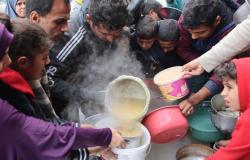Last Friday took place in Bastia, Corsica, the Liet International. This was the 14th edition of the European Song Festival for regional and minority languages. From Toulouse, Séverine Bonnin represented the Occitan language. She took 3rd place.
The essentials of the day: our exclusive selection
Every day, our editorial team reserves the best regional news for you. A selection just for you, to stay in touch with your regions.
France Télévisions uses your email address to send you the newsletter “The essentials of the day: our exclusive selection”. You can unsubscribe at any time via the link at the bottom of this newsletter. Our privacy policy
Eurovision, but for the regional and minority languages of Europe, is the whole challenge of Liet International. 10 artists from all over Europe sang in Corsican, Sardinian, Catalan, Breton, Frisian, Occitan…
Liet International, the European competition for regional and minority languages, has existed for more than 20 years. Invented and developed in 2002 to give voice to groups who sing in a minority language, it has become a sort of Eurovision festival of regional songs, with the main difference that it is forbidden to sing in English.
It was born from a Frisian initiative (in the north of the Netherlands) and its first edition, in 2002, took place in Ljouwert/Leeuwarden, the capital of Friesland. Recognized since 2008 by the Council of Europe which sponsors it, it now travels throughout Europe.
For the year 2024, Bastia hosted the Eurovision of minority languages, the LIET International 14th edition. The previous edition took place in 2022 in Denmark, the 2020 edition was canceled due to corona virus. Thus, after thirteen past editions, in Friesland (Netherlands), Sápmi (Sweden), Brittany (France), Udin (Italy), Xixón (Spain), Oldenburg (northern Germany), Guovdageaidnu (Norway), Ljouwert (Leeuwarden) (Friesland, Netherlands) and Tønder (Denmark), Liet International was in Corsica for the first time.
In these previous competitions the songs were performed in languages such as Arbëresh, Asturian, Basque, Breton, Catalan, Cornish, Corsican, Faroese, Frisian, Friulian, Gaelic, Galician, Karelian, Low German, Manx, Meänkieli, Mordvian, North Frisian, Occitan, Romani, Sami, Sorbian, Udmurt, Vepsian, Votian and Welsh.
For this 2024 edition, there were ten participants:
- Brieg Guerveno – « Beer wine » – Breton
- Duo LeDazzo – « What would come? » – Bas Sorabe
- Joan Peiró Aznar – « nap » – Valencien/Catalan
- Nani Vazana – « A Second Skin » – Ladino
- Rockwark – « I sulk that at Platt » – Low German
- Séverine Bonnin – “ Catharsis » – Occitan
- A Fiara Nova – « Something about tea » – Corse
- Melissa Pander – « Over » – Chills
- Sihav – « Doppelgänger » – Allemand/Sønderjysk
- Luca Marcia – « No Dda Infiu » – Sardines
The song “Catharsis” by Toulouse native Séverine Bonnin was selected to represent the Occitan language at Liet International 2024 which took place in Corsica on November 22, 2024.
Séverine Bonnin traveled to Bastia with her 3 musicians: Claude Ousset drums, Marielle Ousset acoustic guitar and Luc Wasungu bass. For his performance on site, a Corsican guitarist, Jean-Marie Giannelli, played the electric guitar.
Before her departure, Emilie Castagné from the editorial team at the Occitan edition of France 3, spoke with her in Toulouse. Séverine tells him of her pride in representing the Occitan language and culture in this competition: “I sent an audio of several of my songs, the selection was made by a jury and I was selected with my song Catarsis. “, she said.
It is a song that traces our history, a special song at the same time rock and also with medieval, traditional sounds
Séverine Bonnininterview with Emilie Castagné, journalist at France 3
It’s a song that traces our history, a special song, both rock and with medieval and traditional sounds.
L
The text of Cartasis is by Paul Turchi-Duriani, it was adapted into Occitan by Franc Bardou. This song tells us about our history, our Cathar heritage. So the refrain: Dumb page of a hidden past, All the bitter evil not yet drunk, Holy innocence has been burned, Sorn inheritance of a decade left. The pages of history are not read, All the shame is not yet drunk, Innocence has been burned, The legacy of guilt is left to us.
Séverine Bonnin and her troupe obtained a good third place in the final ranking: “It’s really a victory because for me it’s a way of defending the Occitan language and the culture, the culture of Occitania.” said Séverine.
Melissa Pander, representative of Friesland with her song “Over”, placed in second position and the Corsican group Una Fiara Nova won the public prize with the song: “Something about tea“.
The winner of the competition came from the Netherlands to perform a song in Ladino. It’s Nani Vazana, acclaimed by the jury and given a standing ovation by the public for a more than moving interpretation of a song dedicated to her father, who died the week before: “A second skin“.
You have just listened to this piece, you who speak Spanish, you have understood everything or almost… But who is Nani Noam Vazana, from the Netherlands and what is this language: Ladino?
According to the definition of Larousse: “Ladino is a Romance language of Spanish origin, spoken by the descendants of Jews expelled from Spain in 1492 (Sephardic) in the Balkans, the Middle East, North Africa, Greece, in Turkey, etc.”
“Judeo-Spanish, a living language” this is the title of an article published in September 2023 in the newspaper Courrier International, taken from the daily Ha’Aretz (Israeli daily newspaper whose editorial team is based in Tel Aviv). We learn that Ladino, or Judeo-Spanish, is a language historically spoken by the Sephardim of the Iberian Peninsula and the Ottoman Empire. “Once in danger of disappearing, the idiom is now being brought up to date by learners who have come to reconnect with their roots or discover a new culture. “.
The article also refers to El Amaneser, an Istanbul monthly published exclusively in Ladino which has been published since 2005, and which notes the sharp global increase in activities linked to this language: today, the number of Judeo-Spanish speakers around the world.
Singer Nani Vazana’s own website explains: “You’ve probably heard of Hebrew and Yiddish, but did you know that there is another Jewish language? It’s called Ladino (or Judeo-Spanish) – a fun mix of Castilian Spanish and Hebrew, Arabic, Greek, Turkish and a few French and Balkan languages. »
Or again: “If Yiddish is the language of Ashkenazi Jews, Ladino is the language of Sephardic Jews – one could say that it is Spanish Yiddish! When the Jews were expelled from the Iberian Peninsula at the time of Columbus, they brought the language of their region to new countries: northern Africa and the Ottoman Empire were then the most welcoming havens of hope. »
Nani Vazana
•
© FTV
Nani Vazana refers to the history of Spain, to its medieval era. While the coexistence of cultures, religions and languages was the norm, in 1492 Isabella of Spain and her husband King Ferdinand of Aragon decided to expel Jews and Arabs. Thus, very many Jews left Spain, dispersing in various European countries and mainly in the Mediterranean basin and in the Ottoman Empire, taking with them their language and their customs.
These Sephardic Jews spoke Aragonese, Catalan or ancient Castilian and adapted their language to the countries that took them in, which is how Judeo-Spanish was born: the language of the Spanish Jews.
Ladino, or Judeo-Spanish, is today recognized as a minority language in Israel, France, Bosnia-Herzegovina and Turkey. Then, finally in Spain which since 2018 has recognized it as a Spanish language in its own right, in the same way as Catalan or Valenciano.
And if, like me, you have been piqued with curiosity, you can listen to “ Broadcast in Sephardic » an RTVE radio program in this language. So you will be able to hear that from a linguistic point of view, Judeo-Spanish retains many characteristics of medieval Spanish, but it has also incorporated elements from other languages such as Turkish, Greek, Hebrew and Arabic.
A MuseumTales article on Judeo-Spanish gives us these few examples and this comparative table:
The article “The Ladino, do you know? »
•
© ©MuseumTales 2023
If you would like to see and listen to Nani Vazana’s interpretation, Friday evening in Bastia or even “Catharsis” by Séverine Bonnin, the LIET International broadcast on France 3 Corse Via Stella is on replay: Liet 2024 at l’Alb’oru in Bastia.






